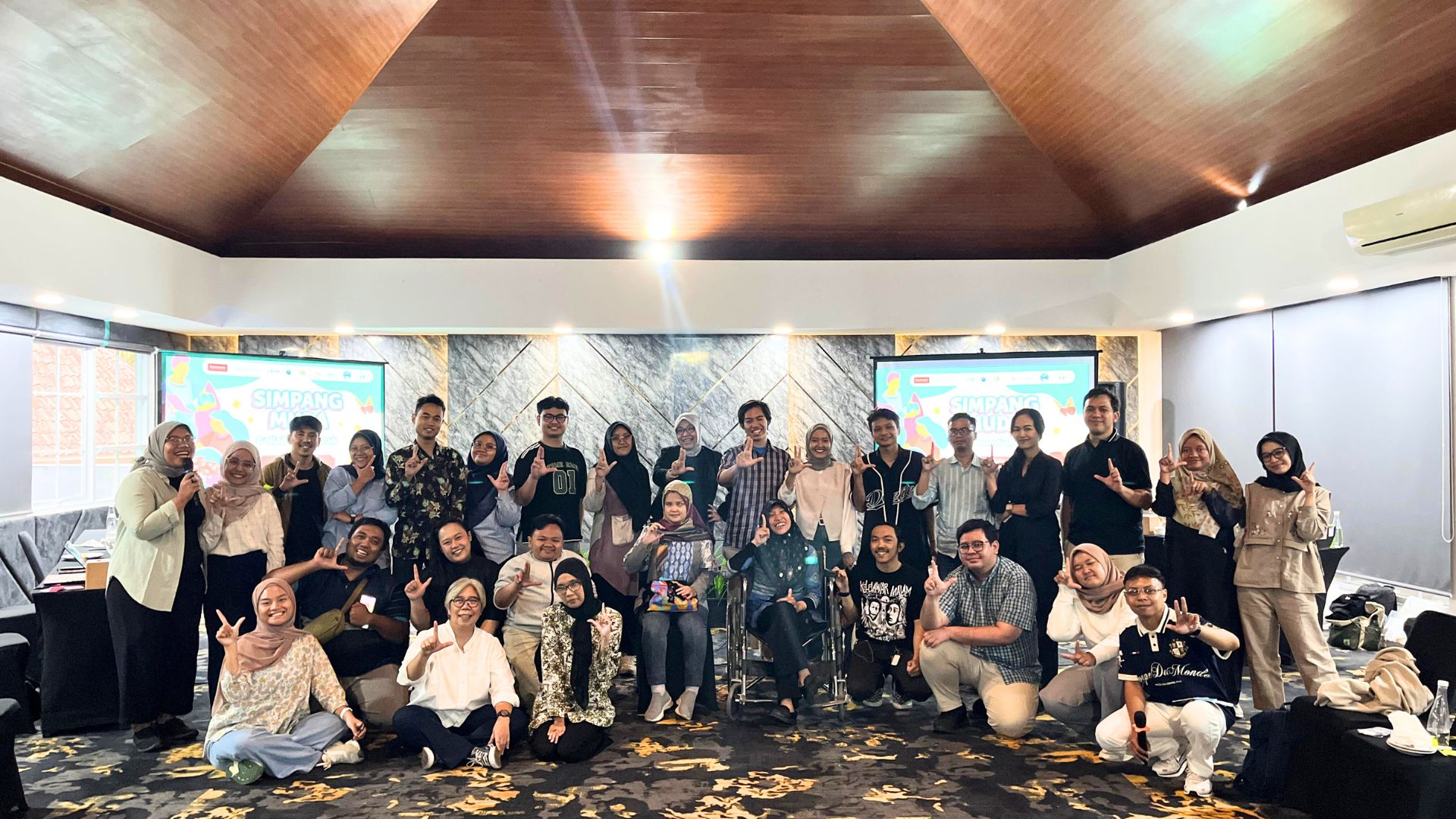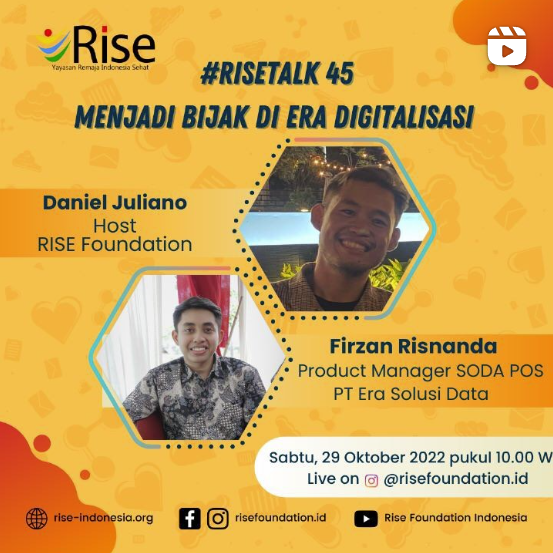
Hello, Sobat Remaja!
This episode of RISETalk has something really exciting in it. This time, we will dive right into the topic of sex education. A lot of people still think talking about sex education is a no-go or taboo topic. This topic plays a crucial role in the development of Indonesian youth.
This time, we’re speaking with Ms. Nur Intan Kartika Sari, also known as Kak Intan. Kak Intan holds an Applied Bachelor’s degree in Midwifery and a Master’s degree in Public Health, currently her role is the Project Leader for Maternal Health Care. Curious about what this RISETalk is all about? Let’s take a closer look.
Sex Education? What’s that?
Before delving into the topic, it is important to understand whether sex education is closely linked to sexual and reproductive health. Sexual and reproductive health encompasses not just physical well-being but also mental and social aspects related to sexual health.
Therefore, sexual and reproductive health in sex education should not be considered a taboo topic for discussion. This is a vital component of youth development, in fact. Why? This can influence the way youth develop attitudes and make decisions regarding their sexual impulses.
So, why is learning about sex education important for youth? Of course because it is a big deal, Sobat. Sex education has the following advantages for youth:
- Awareness of the different outcomes of risky sexual behavior, such as unintended pregnancies;
- Raise awareness of sexual and reproductive health, addressing physical, mental, and social aspects;
- Foster a constructive outlook regarding sexuality and reproduction.

Important Factors Increasing Adolescent Sexual Risk
Essentially, sexual impulse is a natural aspect of all humans, encompassing both men and women. In junior high school, we learned about reproduction and the puberty that every teenager goes through. During this period, we undergo hormonal changes and start feeling attracted to the opposite sex. So, if we’re not well-informed about sexual and reproductive health, we might end up engaging in risky sexual behaviors.
In a survey of adolescent aged 10 to 14 in three Indonesian cities, it was found that only a few boys know that a pregnancy can happen after having sex for the first time. This is different from girls who know about pregnancy after having sex.
It is important to highlight that a qualitative study by the UGM Center for Sexual and Reproductive Health indicates that a significant number of youth lack access to accurate information concerning sexual and reproductive health.
They don’t feel comfortable talking about it with their parents either. It’s simply because parents aren’t giving enough attention and room for discussion. Most parents tend to focus on discussing rules and boundaries that shouldn’t be broken instead of tuning in to what their child is curious about.
Youth have a lot of questions they want to dig into, often without their parents realizing it. This gap makes youth feel embarrassed, so they often stay quiet about sexual and reproductive health topics.
Besides that, external factors like internet pornography can also play a major role. That’s why sex education is important—it’s to equip youth with accurate information about sexual and reproductive health.
So, what do we do about this?
Kak Intan also shared some advice on how to protect yourself from the negative effects of pornographic content. First, if content that seems explicit shows up unexpectedly on our device, just take it in stride as a piece of positive information.
It’s important to note that engaging in pornographic content isn’t appropriate. Youth is a golden age to hone our abilities. Instead of spending time on negative content like pornography, it’s better to engage in positive activities and explore new experiences.
Pornographic content generates similar addictive effects as the use of narcotic drugs. The impact on our brain development is significant. Addiction to pornographic media can lead to demotivation and brain damage. Wow, isn’t it really scary, Sobat?

